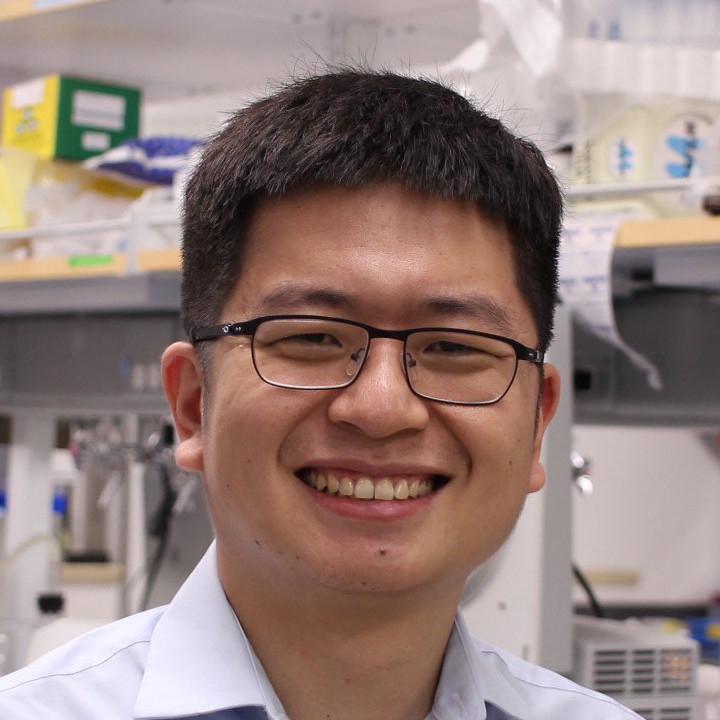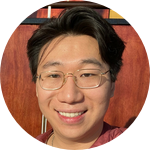About This Project
Biomanufacturing of recombinant proteins in cell culture yields high value for biomedical applications but is costly and resource intensive. We have established a unique class of buoyant protein nanobubbles engineered to display binding peptides to select for protein targets, effectively creating a self-isolating affinity resin. Here, we propose to engineer Cyanobacteria as a sustainable, low resource biomanufacturing platform to unlock a new paradigm for producing these protein nanobubbles.
Ask the Scientists
Join The DiscussionWhat is the context of this research?
In biomanufacturing of recombinant proteins, purification has the most significant impact on cost, accessibility and sustainability (1, 2). Affinity chromatography has the highest fidelity (3) and 25% of the market share among purification technologies (4) in this multi-billion dollar market (5). However, traditional affinity resins require ecologically costly heavy metals (e.g. Ni-NTA beads) or selective protein-based binders (e.g. Protein A/G) that are sourced from a separate biomanufacturing process and chemically immobilized onto a solid support (6). There is an urgent need to develop sustainable and low-cost purification tools for protein biomanufacturing (7), to decouple market growth from ecological impact.
What is the significance of this project?
Gas vesicles (GVs) are genetically encodable, buoyant protein-shelled nanobubbles with emerging potential in biotechnology (8). We have recombinantly expressed engineered GVs in E. coli to display affinity tags and demonstrated their utility as buoyant “beads” for protein purification. Pre-translational modification of GVs yields a purely protein-based product, forgoing chemical modification and simplifying the production process, but GV production in E. coli is resource intensive with low yields. Certain species of photosynthetic cyanobacteria natively produce high yields of GVs on minimal resources – light, CO2, N2 and minerals. Enabling genetic engineering of GVs directly in these Cyanobacteria could provide a paradigm shift in protein biomanufacturing (9).
What are the goals of the project?
The current understanding of Cyanobacterial culture and genetic engineering lags behind established systems such as E. coli and key species of Cyanobacteria which are competent GV producers are not genetically tractable. We will address this in two sub goals:
A. We will develop a pipeline for the genetic engineering of a GV-competent Cyanobacterial species, enabling us to leverage and augment its native GV production capacities and establish it as a sustainable biomanufacturing platform for engineered GVs.
B. We will establish culturing of these Cyanobacteria in flexible, 100-liter scale bioreactors to harvest sustainably produced GVs and perform biochemical and functional validation to ensure we meet the needs of the growing biotech industry.
Budget
n/a
 Project Timeline
Project Timeline
n/a
Dec 31, 2024
Project completion
Meet the Team
Team Bio
We are a group of researchers enthusiastic about the potential of engineering Cyanobacteria as a future platform for biomanufacturing, biomaterials and cutting-edge biomedical applications. Our research focus is on bacterial gas vesicles, a unique gas-filled protein nanostructure that natively occurs in Cyanobacteria and has fascinating potential for ultrasound diagnostics, delivering therapy and engineering nanomaterials.
Manuel Iburg
Manuel Iburg studied Life Sciences at the University of Hannover and the Tokyo Institute of Technology before receiving his PhD in Biochemistry from the Humboldt University of Berlin for research on protein homeostasis and neurodegenerative disease. His passion for the emerging field of synthetic biology brought him to take up a postdoctoral position in Lu Lab at the Department of Bioengineering at Rice University. Here, he is focused on cell- and protein engineering with the goal of leveraging protein nanostructures and entire cells as nanoscale tools to tackle the pressing challenges of the 21st century. Manuel is a Walther-Benjamin fellow of the DFG and a member of the Rice University Academy of Fellows.
George Lu
George Lu obtained his Ph.D. in protein biochemistry at UC San Diego before joining the lab of Mikhail Shapiro at Caltech for his postdoctoral training. There, he focused on the engineering of gas-filled protein nanostructures for ultrasound- and MRI-based biological imaging, and his work was recognized by the Young Investigator of the Year award from the World Molecular Imaging Society. He currently leads the Lab for Synthetic Macromolecular Assemblies (SynMA) at the Department of Bioengineering at Rice University, which leverages synthetic biology and protein engineering to understand the biology and develop novel applications of gas-filled protein nanostructures. Lab website: lulab.rice.edu
Eugene Chung
Eugene Chung is a bioengineering Ph.D. student and NSF Graduate Research Fellow at Rice University, advised by Dr. George Lu. His current research utilizes protein engineering and nanotechnology to develop novel reagents for biomanufacturing protein and cell-based therapies. Before attending Rice, he obtained a broad skillset in nanoparticle-based systems and drug formulations through professional development at the Barrow Neurological Institute and U.S. Army Institute of Surgical Research. Eugene continues to focus on scaling biotech production processes and aims to work in the commercial biomanufacturing space.
Project Backers
- 0Backers
- 0%Funded
- $0Total Donations
- $0Average Donation


